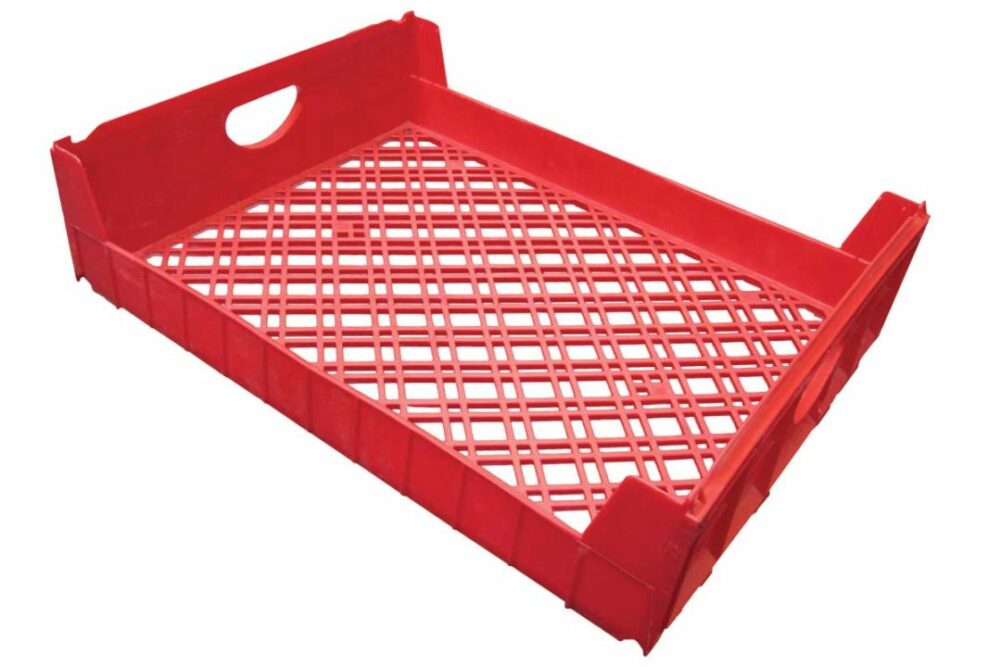KANSAS CITY — When the topics of sanitation and maintenance come up in a commercial bakery, the trays or baskets that deliver finished product to the bakery’s customer usually aren’t top of mind. As pieces that go out into the world and then return to the bakery — bringing back with them anything they encountered along the way — baskets and trays should not be overlooked when it comes to providing a clean manufacturing environment.
“As routine as cleaning a tray or basket may seem to most, those small items may be the root cause of a major issue if not handled correctly,” said Kevin Quinn, sales manager, Douglas Machines Corp. “Everyone wants to avoid eye-grabbing headlines. It really boils down to how important food safety is for items such as trays, baking sheets and baskets to your company. It should be priority one in the baking and snack foods industry.”
Tray design, handling systems and washing and drying systems can all play a role in making these utility pieces easier to clean so they can effectively protect food.
Cleaning these items for food safety didn’t used to be a priority. They were necessary to transport finished product to customers, sometimes function as a display, but mostly, they needed to be utilitarian and hold up with the rigors of transport and stacking.
“Returnable plastic assets including trays, dollies and pallets are much more than transportation or distribution packaging,” said Glenn Rindfleisch, vice-president, sales and marketing, SPF Plastics. They are an integral part of the supply chain from work-in-progress all the way to the retail store. At SPF Groups, we consider every facet of our customers’ business to create the best value including design, material and function. Sanitation is a critical component of our new product development process.”
Sanitation is at the forefront of food manufacturing conversations largely because of the Food Safety Modernization Act (FSMA). “This regulation has impacted sanitation by elevating it to another level and requiring companies large and small to comply,” Mr. Quinn said.
FSMA requires manufacturers to document quality assurance and sanitation practices to ensure food safety. This emphasis on cleanliness trickles down throughout the entire bakery, not just the production floor. Entire supply chains and processing methods are carefully monitored including returnable plastic assets that require regular cleaning. Most plastic bakery trays include flow-through designs for easy sanitation.
Sanitation of transport assets is critical because they exit the bakery, a controlled environment, and go out into the world, which is an uncontrolled one. On the road and in supermarkets or QSRs, a tray can pick up pathogen strains like E. coli and bring them back into the bakery. “That’s a risk that most of our customers cannot bear anymore,” said Patrice Painchaud, vice-president, sales and marketing, Rexfab.
To minimize the risk, trays are being redesigned for easier cleaning, and tray handling systems are making way for the latest washers and dryers that sanitize everything properly.





